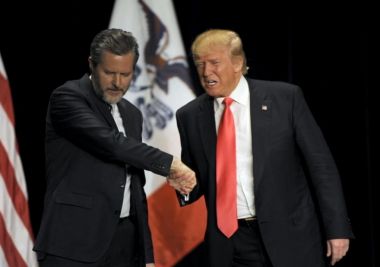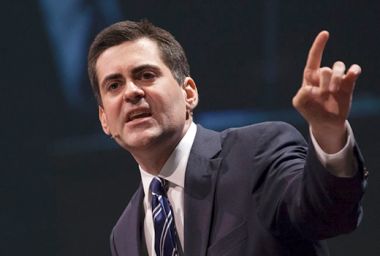Donald Trump's march to White House triggers virtual 'civil war' among U.S. evangelical leaders

The political phenomenon called Donald Trump has effectively triggered what Charisma News termed as a "civil war" in America's evangelical community.
Trump's popularity among self-described evangelicals has prompted well known Christian leaders to ask whether Trump's evangelical supporters really know what their faith teaches, and how such teachings apply to public and political life.
Anti-Trump evangelicals believe that Trump supporters are not applying Christian thinking and values to their decisions at the polls.
"For some evangelicals, Christianity is no longer shaping their politics," Peter Wehner, a fellow at the Ethics and Public Policy Center, commented. "With Mr. Trump in view, their faith lies subordinate."
Mike Farris, the chancellor of Patrick Henry College, a Christian university in Northern Virginia, said Christians who "stay true to their faith" would not vote for a man like Trump.

Russell Moore, head of the Southern Baptist Convention's public policy arm, said voting for Trump is "deeply inconsistent with an application of the Christian faith."
These Christian leaders see Trump as the opposite of everything their faith stand for. They cite Trump's arrogance and brashness, including his statement that he has never had to ask God for forgiveness. They also mention his past infidelities, divorces and his disdainful comments on women in general. They say a candidate who lies blatantly and repeatedly does not deserve to hold public office.
These evangelical leaders are also appalled at Trump's penchant for bullying, his admiration for tyrannical governments and his apparent disregard for the rule of law, which seemed to indicate his intent to use the power of the U.S. presidency to impose his will on America and the world.
These leaders say true power and strength is found in service, self-sacrifice for others and in loving and forgiving one's enemies.
However, the evangelical leaders who support Trump have a curt reply to all these faith-based criticisms.
"We're not voting for a pastor-in-chief," says Jerry Falwell, Jr., the president of Liberty University.
"God called King David a man after God's own heart, even though he was an adulterer and a murderer," Falwell said in a recent interview. "You have to choose the leader that would make the best king or president, and not necessarily someone who would be a good pastor."
Falwell believes that among the presidential candidates, Trump is the best leader to stop terrorist attacks, reduce illegal immigration and deal with the national debt.











